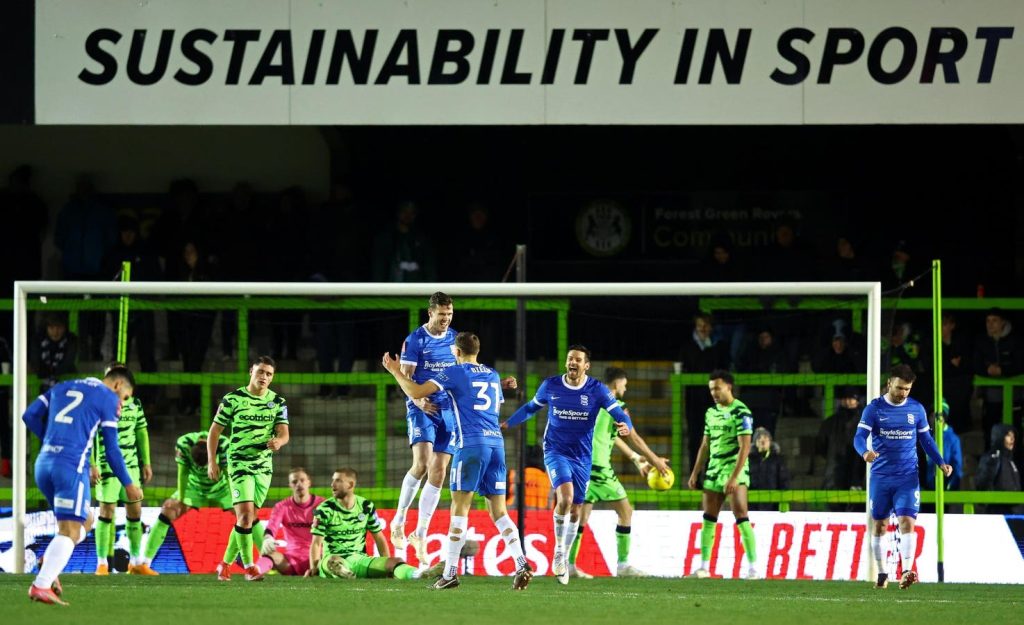English Football League Bolsters Green Credentials with Revamped Sustainability Scheme
The English Football League (EFL), the world’s oldest professional football league, has significantly enhanced its commitment to environmental sustainability by revamping its Green Clubs initiative. This ambitious program aims to encourage and support football clubs across England in adopting greener practices, minimizing their environmental impact, and contributing to a more sustainable future for the sport. The relaunched scheme introduces a tiered accreditation system, allowing clubs to achieve bronze, silver, or gold status based on their environmental performance. This structured approach provides a clear roadmap for clubs to progress and publicly demonstrate their commitment to sustainability.
The EFL Green Clubs initiative, launched in 2021, is a voluntary program designed to empower clubs with the knowledge and resources necessary to implement effective environmental strategies. The program, delivered in partnership with GreenCode, an environmental accreditation organization, offers comprehensive training and support to participating clubs. This encompasses various aspects of club operations, including sustainable procurement, staff engagement, and carbon footprint measurement. The tiered accreditation system adds a new dimension to the program, motivating clubs to strive for higher levels of environmental performance and fostering healthy competition among them.
The new tiered system sets specific criteria for each level, requiring clubs to attain a minimum number of points and implement specific measures. These requirements range from publishing an environmental policy and establishing a baseline carbon footprint to setting ambitious reduction targets and designating a board member responsible for environmental sustainability. This structured approach not only provides clarity and direction for clubs but also ensures transparency and accountability in their environmental efforts. By publicly recognizing and celebrating the achievements of participating clubs, the EFL aims to inspire further action across the league and demonstrate the collective commitment of English football to environmental responsibility.
The enhanced Green Clubs scheme reflects the growing recognition within the football community of the urgent need to address climate change and its potential impact on the sport. Climate modelling predicts that over the next three decades, football grounds in England will face increasing threats from extreme weather events such as flooding, storms, and heatwaves. A stark example of this occurred in September 2024 when AFC Wimbledon’s stadium suffered severe flooding due to heavy rainfall, highlighting the vulnerability of football infrastructure to climate change.
The EFL’s commitment to environmental sustainability aligns with a broader movement within the football world to embrace greener practices. Players, fans, and governing bodies are increasingly vocal about the need for the industry to reduce its carbon footprint and contribute to a more sustainable future. Several European leagues have already implemented environmental initiatives, with some, like Germany’s Bundesliga, incorporating mandatory sustainability criteria into club licensing. The Premier League has also adopted minimum mandatory environmental standards for its clubs. The EFL’s Green Clubs scheme, while voluntary, represents a significant step towards greater ambition and transparency in environmental performance within English football.
The EFL’s revamped Green Clubs scheme signifies a crucial step in the evolution of environmental sustainability within English football. By providing a clear framework for clubs to improve their environmental performance and publicly acknowledging their achievements, the EFL is fostering a culture of sustainability within the league. The tiered accreditation system adds a competitive element, encouraging clubs to strive for higher levels of environmental responsibility. This initiative reflects a growing awareness of the urgent need to address climate change and its potential impact on the sport, aligning with similar efforts in other European leagues and demonstrating the commitment of English football to a greener future. The scheme not only supports clubs in reducing their environmental footprint but also serves as a powerful platform to raise awareness and engage fans in the collective pursuit of a more sustainable future for the beautiful game.


